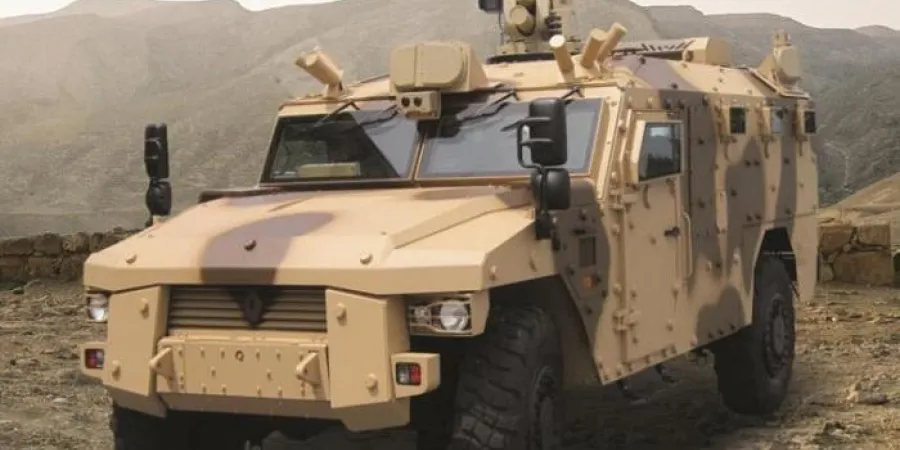Israel Agrees to Sell IMI Systems to Elbit Systems for $523 Million
Five years after the Israeli government agreed to privatize the state-owned weapons manufacturer IMI Systems, the Finance Ministry on Sunday approved its sale to Elbit Systems for 1.8 billion shekels. The deal is still pending the approval of Israel's Antitrust Authority
Omri Milman & Golan Hazani, CTech
| 12/03/2018
Israel agreed to sell state-owned arms manufacturer IMI Systems to Elbit Systems, the Israeli Ministry of Finance announced Sunday. Elbit agreed to pay $523 million (NIS 1.8 billion). The acquisition now requires the approval of Israel’s antitrust authority.
Following Sunday’s announcement, Elbit’s shares were up 6% on the Tel Aviv Stock Exchange, as of 4:30 p.m. Jerusalem time.
The Israeli government first moved to privatize IMI in 2005, but the motion wasn’t approved until 2013. A tender for IMI’s purchase was launched in 2015, with 12 companies participating, including US-based multinational electronics manufacturer Flex LTD., New York City-based holding company Renco Group LLC, and Israeli private equity firm FIMI Opportunity Funds. By January 2016, Elbit was the sole contender left.
The Israeli Finance Ministry’s Accountant General Rony Hizkiyahu led the negotiations with Elbit. In 2015, the negotiations stalled when then-Accountant General Michal Abadi-Boiangiu valuated IMI at $647-706 million (NIS 2.2-2.4 billion), which Elbit countered with an offer of $441 million (NIS 1.5 billion).
According to a company report, IMI lost more than $63.5 million (NIS 216 million) in 2016, compared with $64.4 million (NIS 219 million) the year before and $704.5 (NIS 2.4 billion) in 2014.
The purchase of IMI is expected to strengthen Elbit’s position against fellow Israeli defense contractors Rafael Advanced Defense Systems and Israel Aerospace Industries (IAI). All three are listed among the world's 50 largest weapons manufacturers.
First publication: www.calcalistech.com
Five years after the Israeli government agreed to privatize the state-owned weapons manufacturer IMI Systems, the Finance Ministry on Sunday approved its sale to Elbit Systems for 1.8 billion shekels. The deal is still pending the approval of Israel's Antitrust Authority
Israel agreed to sell state-owned arms manufacturer IMI Systems to Elbit Systems, the Israeli Ministry of Finance announced Sunday. Elbit agreed to pay $523 million (NIS 1.8 billion). The acquisition now requires the approval of Israel’s antitrust authority.
Following Sunday’s announcement, Elbit’s shares were up 6% on the Tel Aviv Stock Exchange, as of 4:30 p.m. Jerusalem time.
The Israeli government first moved to privatize IMI in 2005, but the motion wasn’t approved until 2013. A tender for IMI’s purchase was launched in 2015, with 12 companies participating, including US-based multinational electronics manufacturer Flex LTD., New York City-based holding company Renco Group LLC, and Israeli private equity firm FIMI Opportunity Funds. By January 2016, Elbit was the sole contender left.
The Israeli Finance Ministry’s Accountant General Rony Hizkiyahu led the negotiations with Elbit. In 2015, the negotiations stalled when then-Accountant General Michal Abadi-Boiangiu valuated IMI at $647-706 million (NIS 2.2-2.4 billion), which Elbit countered with an offer of $441 million (NIS 1.5 billion).
According to a company report, IMI lost more than $63.5 million (NIS 216 million) in 2016, compared with $64.4 million (NIS 219 million) the year before and $704.5 (NIS 2.4 billion) in 2014.
The purchase of IMI is expected to strengthen Elbit’s position against fellow Israeli defense contractors Rafael Advanced Defense Systems and Israel Aerospace Industries (IAI). All three are listed among the world's 50 largest weapons manufacturers.
First publication: www.calcalistech.com



